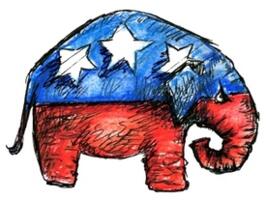For Romney, Will Free Markets or Crony Capitalism Be on Trial?
A Commentary By Scott Rasmussen
When his tenure at the investment firm Bain Capital became an issue in the race for the Republican presidential nomination, Mitt Romney responded by saying he "was disappointed ... to see one of my opponents attacking free enterprise, just like the president was.”
It's understandable why Romney would want to see criticism of his resume as an attack on free enterprise. Seventy percent of Americans favor a free market economy over a government-managed economy. Whether in the primaries or the general election, Romney would like to say he believes in free enterprise while the other candidates believe government has a vital role to play in helping every industry and company succeed. Americans overwhelmingly reject that premise and don’t want government in the business of picking economic winners and losers.
While Romney would hope to position himself as a defender of free market competition, he is potentially vulnerable on the topic because only 35 percent of Americans believe that capitalism and a free market economy are the same thing. Candidate Romney, like many Republicans, tends to use the terms interchangeably. That’s dangerous when 39 percent of voters nationwide believe the country has a system of crony capitalism, while only 34 percent believe free market capitalism is practiced. The rest aren’t sure.
Interestingly, this is one issue with very little partisan divide. Republican, Democrats and unaffiliated voters hold similarly skeptical views. Seven out of 10 Americans believe that big government and big business work together against the rest of us. Voters don’t mind businesses getting big; they just mind when the government gives them an unfair advantage over others.
Regardless of whether his work at Bain Capital took advantage of corporate welfare programs and other largesse from government, Romney’s opponents will make the claim that the wealthy son of a successful politician practiced crony capitalism rather than being a successful leader in a free market environment. As evidence that he’s comfortable with having the government pick winners and losers, Romney’s support of the bailouts can be trotted out. Those bailouts remain the most hated piece of legislation in recent American history.
Currently, 39 percent of voters nationwide view Romney's experience at Bain as a reason to vote for him, while 34 percent say it's a reason to vote against him. Much of that can be attributed to normal partisan differences, with Republicans saying his experience is a plus and Democrats saying the opposite. But where the numbers move as the campaign unfolds may depend on whether Romney is seen as free market Mitt or a crony capitalist.
To be seen as a defender of free markets, the former Massachusetts governor will have to do more than point to his track record as a venture capitalist. He will need to challenge the status quo rather than defend it. By a 58 percent to 29 percent margin, voters believe more free market competition is better than more government regulation. Only 13 percent believe that providing government subsidies produces more innovation than private-sector competition.
In the United States today, voters may not believe we have a free market system, but they look forward to reaching that goal. To put it simply: Voters see free markets as good, corporate welfare as bad.
COPYRIGHT 2012 SCOTT RASMUSSEN
DISTRIBUTED BY CREATORS.COM
See Other Political Commentaries.
See Other Commentaries by Scott Rasmussen
Rasmussen Reports is a media company specializing in the collection, publication and distribution of public opinion information.
We conduct public opinion polls on a variety of topics to inform our audience on events in the news and other topics of interest. To ensure editorial control and independence, we pay for the polls ourselves and generate revenue through the sale of subscriptions, sponsorships, and advertising. Nightly polling on politics, business and lifestyle topics provides the content to update the Rasmussen Reports web site many times each day. If it's in the news, it's in our polls. Additionally, the data drives a daily update newsletter and various media outlets across the country.
Some information, including the Rasmussen Reports daily Presidential Tracking Poll and commentaries are available for free to the general public. Subscriptions are available for $4.95 a month or 34.95 a year that provide subscribers with exclusive access to more than 20 stories per week on upcoming elections, consumer confidence, and issues that affect us all. For those who are really into the numbers, Platinum Members can review demographic crosstabs and a full history of our data.
To learn more about our methodology, click here.




